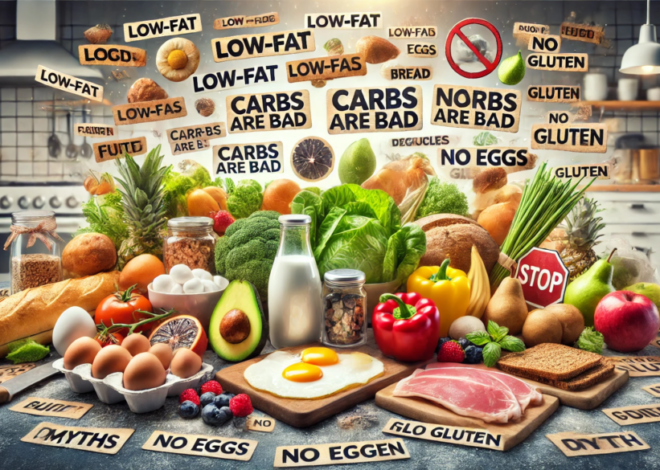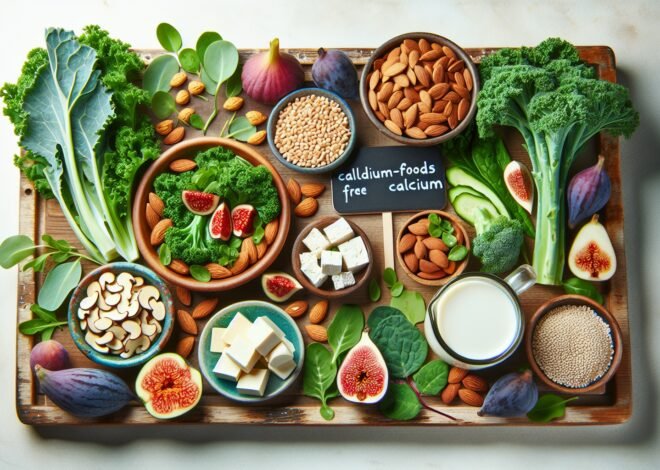
How to Balance Carbohydrates and Protein for Optimal Nutrition
Balance carbs and protein for optimal nutrition is crucial, especially considering that the right mix can boost energy, aid in muscle repair, and regulate blood sugar levels. Studies suggest that a balanced ratio contributes significantly to maintaining a healthy weight and reducing chronic disease risks. This post will explore simple strategies for achieving the right balance, such as portion control and timing of meals. You’ll learn how to include diverse carbs, like whole grains and legumes, and the best protein sources, including lean meats and plant-based options. Understanding these principles will help you make informed decisions that will enhance overall well-being and longevity.
Understanding the Role of Carbohydrates and Protein in a Balanced Diet
Carbohydrates and proteins are fundamental components of a healthy diet. Each plays a vital role in maintaining body functions and energy levels. Understanding their individual importance and how they work together can empower you to make informed dietary choices.
What Are Carbohydrates and Why Are They Important?
Carbohydrates, often referred to as carbs, are the body’s primary energy source. Found in foods like grains, fruits, and vegetables, they are crucial for brain function and physical activity. Carbs are broken down into glucose, which fuels cells and supports overall health. Without adequate carbohydrate intake, the body struggles to maintain energy levels, leading to fatigue and impaired cognitive functions. They also play a key role in maintaining healthy digestion due to their fiber content, aiding in regular bowel movements.
The Essential Functions of Protein for Body Health
Proteins are the building blocks of life. Essential for growth and repair, proteins are made up of amino acids that support muscle development, immune function, and enzyme production. Foods rich in protein include meats, dairy products, legumes, and nuts, each contributing to the body’s ability to build and repair tissues. Proteins also help in hormone regulation and are integral to maintaining a balanced metabolism. Their role is indispensable, especially for individuals focused on muscle gain or recovery after physical activity.
How Carbohydrates and Protein Work Together for Energy
Carbohydrates and proteins collaborate to provide sustained energy. While carbs offer immediate energy by replenishing glycogen stores, proteins ensure that muscles remain strong and healthy, aiding in recovery and endurance. This synergy is particularly important for active individuals, as it supports both quick energy access and long-term muscle health. A balanced intake of both nutrients ensures that the body functions optimally during exercise, daily tasks, and cognitive activities.
Effective Strategies to Balance Your Carb and Protein Intake
Balancing carbohydrates and proteins requires mindful planning. Strategic intake can optimize health benefits and support daily energy needs. By calculating your requirements and understanding timing, you can efficiently manage these nutrients in your diet.
Calculating Your Optimal Daily Intake of Carbs and Proteins
Determining the right balance of carbs and proteins depends on several factors, including age, sex, activity level, and health goals. Typically, it is recommended that 45-65% of daily calories come from carbohydrates and 10-35% from proteins. To find your specific needs, consider using online calculators or consulting with a nutritionist. They can provide personalized recommendations based on your lifestyle and dietary preferences, ensuring you get the nutrients you need without excess.
Tips for Incorporating Carbs and Proteins into Every Meal
Incorporating a balance of carbs and proteins in every meal can be simple with a few strategic steps:
- Start your day with a high-protein breakfast such as eggs or Greek yogurt with fruit.
- Opt for whole grains like brown rice or quinoa for lunch, paired with lean protein sources like chicken or tofu.
- Include a portion of vegetables in every meal to add fiber and nutrients.
- Snack on nuts or seeds, which provide both protein and healthy fats.
- For dinner, include beans and legumes alongside a small portion of protein-rich meat.
These strategies can help maintain energy levels and support muscle health throughout the day.
The Role of Timing in Consuming Carbs and Proteins
Timing your nutrient intake can enhance performance and recovery. Consuming carbs and proteins post-workout can aid muscle repair and replenish glycogen stores. Morning meals should focus on carbs to kickstart metabolism and energy. Distributing protein intake evenly throughout the day supports sustained muscle maintenance. Consider small, balanced meals every 3-4 hours to maintain energy and prevent hunger.
Customizing Your Diet for Specific Health Goals
Customizing your diet to align with health goals involves adjusting your carbohydrate and protein intake. Whether aiming for weight loss, muscle gain, or endurance training, fine-tuning your diet can lead to more effective results.
Balancing Carbs and Proteins for Weight Loss and Muscle Gain
For weight loss, a higher protein intake can promote satiety and support muscle retention. Reducing carbohydrate intake, particularly refined sugars, can help manage weight. Conversely, muscle gain requires an increased protein intake to support muscle synthesis. Carbs should not be neglected as they provide the energy needed for workouts, allowing for more effective training sessions and recovery.
Adapting Carbohydrate and Protein Ratios for Endurance Training
Endurance athletes benefit from a diet higher in carbohydrates to sustain prolonged physical activities. Carbs fuel long-duration workouts, while proteins aid muscle repair and recovery. Adjusting the carb-to-protein ratio is crucial for enhancing performance and avoiding fatigue. Endurance diets often include carb loading before events and balanced meals post-activity to replenish and repair.
How Different Diets Handle Carbohydrate and Protein Balance
Various diets approach carbs and proteins differently. Low-carb diets like keto emphasize high fat and protein, minimizing carbs. Plant-based diets focus on natural, whole-food carbohydrates and plant proteins. Adjusting to these diets requires understanding their impact on energy levels and overall health. Choosing a diet that aligns with personal health goals and lifestyle can ensure long-term adherence and success.
Conclusion
Balancing carbs and protein is essential for optimal health and energy levels. A diet with the right proportion of these macronutrients can improve muscle development and repair. Protein helps in feeling full longer, reducing overall calorie intake. Carbohydrates provide the necessary fuel for physical activity and brain function. Adjusting the ratio based on individual health goals and activity level can enhance overall well-being.
FAQ
How can I balance carbs and protein for weight loss?
Balancing carbs and protein for weight loss involves choosing whole grains, lean proteins, and a variety of fruits and vegetables. Adjust portion sizes to ensure a moderate intake of carbohydrates while focusing on adequate protein to keep you full and support metabolism.
What are the benefits of balancing carbohydrates and protein in a diet?
Balancing carbohydrates and protein helps maintain stable blood sugar levels, supports muscle repair, and enhances satiety. This combination can lead to sustained energy levels, reduced cravings, and improved body composition.
How do I plan meals with the right balance of carbs and protein?
Start by dividing your plate into sections for proteins, carbs, and vegetables. Select high-quality proteins like chicken or beans, and pair them with whole grains or starchy vegetables. Include leafy greens and colorful veggies to add nutrients and fiber.
What are some healthy sources of proteins and carbohydrates?
Healthy proteins include fish, tofu, eggs, and legumes. For carbohydrates, opt for quinoa, oats, sweet potatoes, and brown rice. These foods provide essential nutrients and energy without excessive sugar or unhealthy fats.
How does balancing carbs and protein affect energy levels and muscle growth?
Proper balance ensures a steady release of energy throughout the day, reducing fatigue and enhancing focus. Protein supports muscle repair and growth, especially when paired with carbs post-exercise to replenish glycogen stores.
Are there specific guidelines for athletes to balance carbohydrates and protein intake?
Athletes may need higher carbohydrate intake for energy during training, alongside protein to support muscle recovery. Pre- and post-workout meals should focus on complex carbs and lean proteins to optimize performance and recovery.











